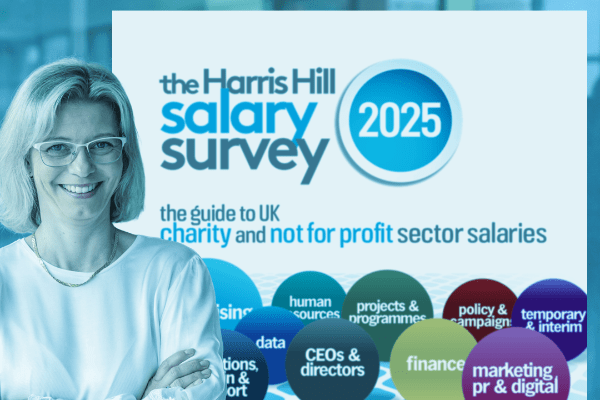We've all had those days. It's hectic, you're working hard, but it's even harder to see what you're actually getting done. Luckily, for this month's guest post, Nicola Greenbrook is exploring some useful hacks to ward off procrastination and help us be more productive at work.
Just as soon as you've finished reading this, of course...

'I've done nothing today' 'Where has the time gone?!' 'There's never enough hours!'
How to be productive at work
According to HR software provider CIPHR, more than half of workers cite distractions such as smartphones, the internet, chatty co-workers and email overload as factors that prevent them from working properly and reaching their full potential.
As well as external influences, our own personal approach to work can impact on productivity; as the American writer Mark Twain once said: 'Never put off till tomorrow what you can do the day after tomorrow just as well'.
Most of us defer until the last minute every now and then at work, but if you're a serial procrastinator it's likely you'll chronically avoid difficult tasks and deliberately seek out distractions.
On the bright side, it's a habit that can be overcome. Here are some tips on how to boost your productivity at work.
Don't do, without a to-do
When you're busy, the temptation is to tackle work head-on and treat planning as a waste of precious 'doing' time.
In fact, lack of preparation can contribute to reduced productivity. Some of the most effective workers set their key priorities before anything else; either at the end of the working day to eliminate decision-making tasks in the morning, or at the start when their mind is fresh.
Writer, brand consultant and Women Who founder Otegha Uwagba, offers some great tips on maximising productivity in her modern career guide Little Black Book. She recommends not checking emails or social media first thing in the morning to avoid tumbling down an 'internet rabbit hole'. Instead, Otegha suggests reframing the first and most precious hour of the working day as 'Power Hour'; setting out the day's priorities and planning workflow upfront.
Try categorising your to-do list into three parts:
1. the dreaded, least favourite tasks
2. stuff you're motivated and excited to complete, and
3. personal admin and the 'nice to do'.
It's easy to launch straight into (2) and (3), but tackling (1) first could provide headspace and some well-earned smugness. Starting important tasks early avoids cramming two hours of work into one, sloppy work and frustration.
Put pen to paper
Modern technology offers some innovative tools to work efficaciously.
My current favourite is virtual to-do list Wunderlist which helps you note, diarise and tick off your personal and professional to dos.
It's a great app to 'mind dump', project manage and ease a brain that's crammed to bursting. You can also share lists with others (my husband really appreciates getting notifications at work that say 'Nicola has completed 'Buy Toilet Rolls') and it's great for planning.
Yet, sometimes there's nothing better than the humble written list and, to quote Otegha, often it 'helps to go analogue'.
I'm a part-time HR Specialist at an intellectual property law firm, which I hugely enjoy as well as freelance writing and parenting. It's essential I maximise office time and compartmentalise my varying responsibilities. Keeping a notebook on my desk keeps my sometimes-wandering brain in check; when 'buy nappies!' or a new article idea pops into my head without warning, I quickly scribble it down and carry on HR-ing.
This means the thought or action doesn't disappear and I can jot it down quickly rather than add to Wunderlist on my phone (I hate colleagues to think I'm idly scrolling on my phone when I'm at my desk). It's safely stored, ready to tackle later when the time is right.

Step away from Twitter!
Ah yes, social media - productivity's nemesis. Most of us can relate to starting the day with good intentions, briefly checking our phones over coffee then looking up twenty minutes later after being lost in a Twitter abyss.
Consider going cold turkey and removing apps from your smartphone, or 'rewarding' yourself with blocks of scrolling time at lunch or on the commute. Social media usage-limiting apps like Moment automatically track how much you use your phone, allow you to set restrictions and even force yourself off it (gulp) when you're over the limit.
If you've discovered a fascinating article you're desperate to read now but know you shouldn't really at work, Pocket could be the answer. It's an app and web service that helps you manage a reading list of internet articles; when you find something you want to view later, you put it in your Pocket. For retrieving later when you can read about Bodyguard without getting in trouble.
Know when you're 'peak you'
Sunday Times bestselling author, podcaster and broadcaster Emma Gannon believes the key to productivity is knowing when you're at your best (her most productive time is between 10am and 3pm).
She works in ninety-minute bursts and when she needs to 'deep work' and focus, she sets her phone to aeroplane mode or banishes it to another room and sets an out of office on email to ensure no disturbance.
Get to know how you personally work best - there's no right or wrong. If you're at your least dynamic in the afternoon or suffer from energy slumps, save your admin and less creative work until then.
Consider shaking things up a bit and begin your working day an hour earlier, if your lifestyle permits. This could equal precious time away from distractions, clients or colleagues and getting ahead of the game. Or set a 'do not disturb' and notify your team how long it applies for; this creates a personal responsibility to finish a task and you can't blame others if you faff about instead.
Have a break, have a...
Some days, the deadlines compete fiercely with each other, your to-do list runs off the page and you absolutely must leave on time.
When lunchtime looms, it's easy to ignore the rumbling tummy, a slightly fuzzy head and simply plough through. Yet, skipping breaks can be counterproductive and significantly impact mental performance.
Being at your desk doesn't mean you're being productive, and working hours on end without any break can make us slower. Silicon Valley consultant Alex Soojung-Kim Pang argues in his book 'Rest: Why You Get More Done When You Work Less' that dismissing rest stifles our ability to think creatively and truly recharge.
After each productive burst take a short break and, importantly, step away from the screen. Consider the Pomodoro Technique, a time management method developed in the late 1980s. Essentially, this means breaking work down into chunks of time, usually 25 minutes, and intersperse these with short breaks. This means you're not working non-stop and expecting your poor brain to be at peak performance for great big stretches of time.
Being productive doesn't mean over-doing it.
Making some simple adjustments such as establishing your key priorities before tackling the load, limiting social media and taking regular breaks could be the difference to working smarter, not harder.
To quote poet and activist Maya Angelou, 'Nothing will work unless you do'. Now step away from the phone...
Nicola Greenbrook - HR Specialist & Freelance Writer
-

Opportunity for all
Find out how we’re working to deliver more diverse, equitable and inclusive recruitment…
-

Recruiting a charity CEO?
Our executive recruitment specialists have an exceptional record of successful CEO, chair, trustee and…
-

Charity sector salaries
Our 2025 Salary Survey has the latest rates and expert insight for roles throughout the sector.













